I’ll turn 60 later this summer and I’ve noticed a truth that seems to reveal itself over the course of a lifetime. It’s called “change.”
As the years have passed by, I’ve seen rivers reshape their banks, saplings turn into trees, and new houses spring up where I’ve never seen houses before. At the same time, my friends and family have grown older, my son has shot up like a weed, human technology has advanced, and my daily activities and routines have evolved. It’s just the way things are. As the Greek philosopher Heraclitus once pointed out, “the only constant in life is change.”
These overt transformations occur all around us, sometimes via incremental little shifts and sometimes, as we’ve seen recently, with a suddenness that catches us by surprise. Almost always, though, the scale is so vast that it’s hard for us to fathom. The sheer volume of change can leave us unmoored, and that’s especially true for those of us who value heritage and tradition above convenience and expediency.
We know that a certain amount of change is baked into reality. Nature follows its own immutable rhythms and people will always be tethered to the natural world. In spite of that, I’m not sure that humans were meant to walk through life with the ground shifting so quickly under our feet. You don’t have to follow the news of the day to notice that life seems to be spinning faster and faster all around us.
I grew up back in the ‘60s in a home with a single rotary phone mounted to the kitchen wall. Now my son, who is in high school, has an iPhone that’s more powerful than the NASA computers that guided Apollo 11 to the moon. That’s pretty crazy stuff.
More Like This
I’m also blown away that most of us were still using traditional cameras and dropping off our film for development a mere 15 years ago. Now I open up my computer or pick up my phone and see pictures of the fish my friend just landed on the other side of the planet. Technology is advancing at a pace I never could have envisioned when I was younger.
I’ll leave it to you to decide whether the convenience of saying, “Siri, call Mackenzie River Pizza in Kalispell,” or “Alexa, turn on the television,” outweighs the obvious downsides. Personally, I’m not a big fan of kids who can’t pry themselves away from their mobile phones, or people who spend more time playing video games than interacting with friends and family. That said, there are certainly an awful lot of folks who have embraced our social and technological changes with gusto.
The single biggest shift I’ve noticed with fly fishing might actually surprise some of you. From where I sit, it’s not so much a change in gear, or tactics, or techniques — or the struggles we’re all currently facing from the pandemic — as it is a change in attitude.
I bumped into an old friend last fall on the Henry’s Fork and he got right to the heart of things. Dry fly fishing, he explained, used to be the pinnacle of our sport, and the men and women who played the dry fly game were celebrated in the fly fishing media and in fly fishing culture. John Gierach made that same point back in the ‘80s when he wrote that he and his fishing partner invariably preferred dry fly fishing, and that a twelve inch trout caught on a dry fly was four inches longer than a twelve inch trout caught on a nymph or a streamer.
It’s obvious that Gierach had his tongue planted firmly in his cheek when he penned The View From Rat Lake, but you still can’t argue with his observation. Most fly fishers did focus on dry flies, and many went so far as to place dry fly angling on a pedestal. And you can see why. Casting a dry fly is way, way more enjoyable than lobbing nymphs or hucking streamers, and there’s something absolutely wonderful about having the totality of the angling experience play out right in front of you. Who doesn’t love watching a large trout sip mayflies from the surface, and who doesn’t feel a thrill when that same fish tilts up under your imitation?
Yet as Bob Dylan pointed out, the times they are a changin. Many fly fishers no longer focus on dry flies, or even on trout. You’re as likely to hear about folks stalking the flats for bonefish or permit, or chasing bass, or pike, or carp, or muskie, as you are to run across a true-blue trout fisherman extolling the virtues of a well-placed Harrop Last Chance Cripple on his or her local trout stream. And when you do bump into trout aficionados, chances are good that they’ll be talking about their favorite strike indicators or discussing their favorite glow bug patterns or woolly bugger variations.
Honestly, that’s okay. Maybe a lot of those folks will never learn how to cast well enough to present a dry fly, and maybe they’ll never really understand the excitement we feel when we stalk an oversized Henry’s Fork rainbow or a big Beaverkill brown, but it’s okay for fly fishing to mean different things to different people. As long as we’re all out there having fun, then there’s absolutely no reason we have to look at the sport the same way.
I should also mention that these shifts to the fly fishing culture afford certain benefits to those of us who view our angling through a more traditional lens. When I started traveling to great rivers like the Missouri and the Madison, the vast majority of my fellow anglers were fishing dry flies. Now the folks who aren’t off chasing bass or bonefish are typically lobbing nymphs under a strike indicator, and the rising trout I love to target don’t have nearly as much pressure.
It’s true. Sometimes change can be a good thing.





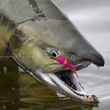
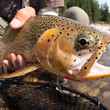

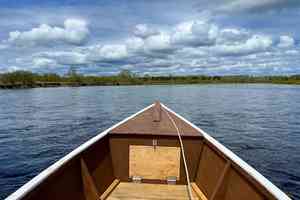


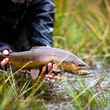

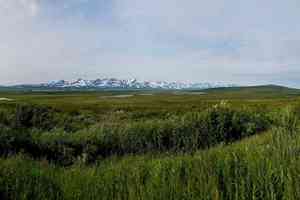

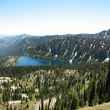
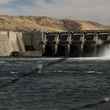
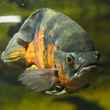




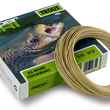




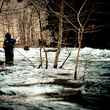

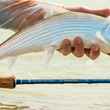

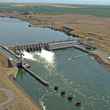
Comments
Gerry Quigley replied on Permalink
Thank you, being in the same age bracket as you, I greatly enjoyed this read
Gerry
Christine Douglas replied on Permalink
Amen brother! I've been learning to fly fish and the focus has been almost entirely on nymphing. I've been so frustrated. It just wasn't the reason why I thought I wanted to make the jump from bait casting. I started looking into dry fly and have discovered THIS is why I started fly fishing. I have a lot to learn and fellow fly Fishers look at me weird when I day I'm becoming a dry fly purist but I don't care. I started fishing because I just enjoy the excuse to be out on the stream and watch fish rise. Somebody's got it do it - even if there are only a few of us. Like you said - all the better. Tight lines!
Hankins replied on Permalink
Anyone can jam a nymph in the face of a trout on bottom of the river. To bring a trout from the bottom of the river to the surface to take your dry fly, well that’s just something special.
Richard Head replied on Permalink
A bit heavy handed, don’t ya think? Not sure the where are the elitists message is what our sport needs now. It’s certainly not going to bring unity to it. And for the record, I hate fishing with bobbers.
Joe Nicklo replied on Permalink
I am 82 now and I have been fly fishing since I was 10. I have said this often to many and I am a true believer: “ I would give up three days of nymph fishing for just one evening of three-hours of good dry fly fishing”. Stay the course!
Matt replied on Permalink
Well said, sir. I'm 43 years old and have been fly fishing now for 27 years - since I saved up my pennies to buy a Pflueger fly rod back in 1994. I'm heartened to see that I'm not the only one to feel a deep unease with the pace of change in our world today - and I'm not even that old! I think that's the Gen X perspective of straddling the digital divide. Frankly, I find the constant flux of our society to disconcerting at best, and rather nauseating much of the time. I look to fishing to mentally decompress from the stress and strain of modern life. I scrupulously avoid fishing-related social media, which in my opinion is one of the worst facets of the application of the internet age to fly fishing.
Jerry Kustich replied on Permalink
Thoughtful piece, Todd. I always figured that committing to dry fly fishing was analogous to hunting with a bow...a much more intuitive, stealthy and addictive form of fly fishing. Add to that using a bamboo rod, and the experience is sublime.
Dennis replied on Permalink
Most will never cast good enough to present a dry fly? Get real dude, you realize you're talking about literally the easiest rig to cast, right?
Granted... Okay I guess you're right in that most anglers don't and probably never will practice enough to become good casters in general. However I guess I feel like fly fishing one method carries over to the rest. I'll primarily fly fish streamers at bass lakes from a kayak few dozen times a year with a handful of euro nymphing trips, and maybe one or two obligate dry fly or salt trips per year. When I decide to fish dries for trout I notice that I'm at I'm still dialed in at the top of my dry fly game. Somtimes takes about a half hour to get the areal mend back, but the nimbler rod draws the finesse right back.
My point? Any time spent doing literally anything with a fly rod in hand is better than time spent on the couch. Practice is the magic bullet. You want to practice euro nymphing to dial in the short game, streamers for the long game, and everything else kinda falls into place from there.
Nikk replied on Permalink
Fishing only dry flies is a sure-fire way to guarantee getting skunked more than fishing with different techniques. Maybe getting skunked doesn't matter to you and your cohort of dry fly purists, and that's okay. I am under the impression that reaching the "pinnacle" of fly fishing - whatever the hell that means - is about being adaptable and learning how to fish many different techniques that suit the conditions in which you are fishing. What's the point of throwing a size 22 emerger pattern in the dead of winter when you know the fish are staying low and deep? What's the point of fishing a euro set up to a school of rising fish? Adaptability is the name of the game in my opinon.
Pages